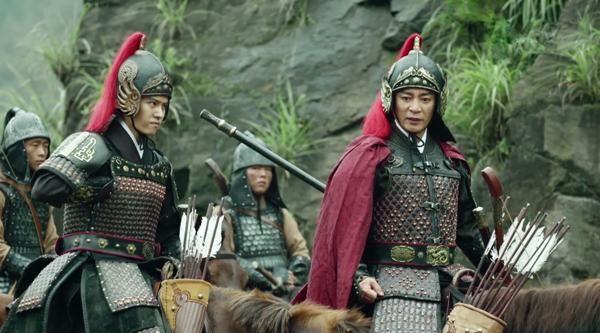In 1662, Li Dingguo, who insisted on resisting the Qing in Yunnan, received bad news that Burma had handed over the Yongli Emperor and the crown prince to the Qing army. This fierce general on the battlefield beat his chest and wept bitterly, Li Dingguo knew very well that the Yongli Emperor would not be able to escape death, and the banner of the Ming Dynasty and the Qing Dynasty had fallen, so what ability did he have to restore the rivers and mountains? June 11 of that year was Li Dingguo's 42nd birthday, but he could not afford to fall ill and gradually became serious.
On June 27, Li Dingguo came to the end of his life, and before he died, he arranged his posthumous affairs. At that time, Li Dingguo's eldest son had long been killed in battle, so he could only hand over the army to his second son, Li Sixing. However, Li Sixingde was not too old to fully grasp it, so Li Dingguo entrusted him to the general Jin Tongwu and let Li Sixing worship Jin Tongwu as his adoptive father. Finally, Li Dingguo also instructed his sons and subordinates: "It is better to die in desolation than surrender!" ”

Although Li Dingguo failed, his tenacious spirit of resistance is always worthy of the admiration of future generations. According to Li Dingguo's identity and status, if he surrendered to the Qing Dynasty, he could easily exchange the throne, but he did not do so, and since he submitted to the Southern Ming Dynasty, he has always stood in the front line of the fight against the Qing Dynasty, "two famous kings", and defeated the Qing army many times until the end of his life. However, has Li Dingguo's wish to "prefer to die in the wilderness rather than surrender to the Qing Dynasty" come true?
The answer is no! After Li Dingguo's death, due to the leaderlessness of the dragons and the disintegration of the military, many generals did not obey Jin Tongwu. The first to jump out was Li Dingguo's cousin Ma Siliang, who disobeyed Jin Tongwu's restraint and actually conspired with the generals Hu Shundu, Wang Daoheng and others to poison Jin Tongwu, and then led part of the army to surrender to the Qing Dynasty. Originally, Li Dingguo's army was not much left, but now there was a defection, and there was no way out to resist the Qing.
The Great Western Army, which was subordinate to the Southern Ming Dynasty, consisted of three main parts, led by Sun Kewang, Li Dingguo, and Liu Wenxiu. Sun Kewang had already surrendered to the Qing Dynasty and was made the Prince of Righteousness, and his subordinate Bai Wenxuan followed Li Dingguo to resist the Qing. In 1661, at the instigation of his generals, Bai Wenxuan parted ways with Li Dingguo and led his army to surrender to the Qing Dynasty, and was given the title of Duke of Cheng'en. After Liu Wenxiu's death, his son Liu Zhen led his troops, who also surrendered to the Qing Dynasty after the death of Jin Tongwu.
In the end, only Li Sixing remained, who failed to abide by his father's instructions and submitted a letter of surrender to the Qing Dynasty in September of the first year of the Kangxi Dynasty. After Receiving the letter, Wu Sangui immediately reported it to the imperial court. In November, Li Sixing sent someone to hand over the book, treasure, and marshal seal left by Li Dingguo to Wu Sangui. On December 19, Li Sixing led more than 1,200 officers and soldiers and their families to Erhai and formally surrendered to the Qing Dynasty.
Sonny, Aobai and other four auxiliary ministers demoted in the name of the Kangxi Emperor, "Li Sixing conferred the rank of capital, and the following officials were reconsidered from the best." After that, there are not many records about Li Sixing, only that he was incorporated into the Eight Banners of the Han Army, served as a staff leader, and was promoted to the governor of Tongzhi and the chief military officer of Ningxia, Shaanxi in the 26th year of Kangxi, and then died of illness in the 32nd year of Kangxi. Li Sixing's son, named Li Tianzhi(李天志), was a burly man with a high temperament, and served as a court bodyguard, which was deeply appreciated by the Yongzheng Emperor.
Although Li Sixing led an army to surrender to the Qing Dynasty, there were still some people who were reluctant to surrender, and they lived a hundred miles east of the Ava River, known as the "Gui Family". There are still some descendants of Li Dingguo's subordinates who live in Burma and become a local ethnic minority, but still use Chinese and write Chinese characters.
References: 1. Records of the Ancestors of the Qing Dynasty; 2. Records of the Rouyuan Of the State Dynasty; 3. History of the Southern Ming Dynasty